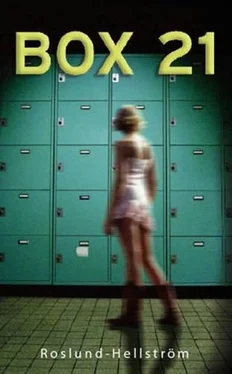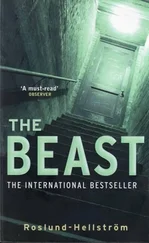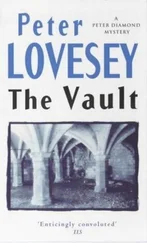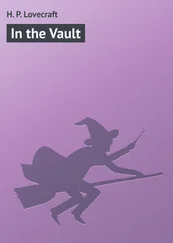
Anders Roslund, Börge Hellström
Box 21 aka The Vault
A book in the Ewert Grens series, 2007
English translation originally published in 2008 by Sphere, Great Britain, as The Vault
Translated from the Swedish.
EXTRACT FROM AN ACCIDENT &
EMERGENCY PRIMARY ASSESSMENT
SÖDER HOSPITAL, STOCKHOLM
… Unconscious female, unknown identity, brought in by ambulance 09:05. Neighbour called emergency services to flat at 3 Völund Street.

She clung to her mother’s hand.
During the last year she had done this a lot, held on tight to her mother’s soft hand and felt it squeeze hers back.
She didn’t really want to go to the big city.
Her name was Lydia Grajauskas and she already had a sore tummy when they boarded the bus outside the ugly bus terminal in Klaipeda. The further away from home they went, the worse she felt.
Lydia had never been to Vilnius before – she had only imagined it and looked at pictures and listened to people’s stories – but now she didn’t want to go there at all, because it wasn’t her kind of place; she had nothing to do there.
It was more than a year since she had seen him.
She was about to turn nine and she had thought a hand grenade was a kind of cool present.
Dad hadn’t noticed that she was watching him. He had his back turned to her and Vladi, and he was excited about being with the other men; they all drank and shouted and hated the Russians. She was lying top to tail with Vladi in the sofa, a huge brown thing with a worn corduroy cover that smelt horrible; they used to lie there sometimes when school was closed and Dad was working. They listened. There was something special about the men’s loud voices and guns and boxes of ammunition that fascinated them, that made them hide on the sofa to listen and watch more often than was perhaps good for them. Dad’s cheeks had been so red, which they weren’t normally, only sometimes at home, when he had been drinking straight from the bottle and sneaked up behind Mum and pressed himself against her bum. Of course, they had no idea that Lydia noticed what they were up to and she didn’t let on. He’d always drink just a bit more and Mum would have a taste too, her mouth to the bottle and then they’d go into the small bedroom, chase everyone out and close the door.
Lydia liked to see her dad’s flushed cheeks. At home or with the other men, polishing the weapons in front of them all. He seemed more alive then; he didn’t look as old as normal, after all he was twenty-nine.
She peeped cautiously through the window.
Her stomach hurt even more when the bus started and then hurtled along roads full of potholes, and every time one of the front wheels bumped over an especially rough bit, her seat shook and something sharp jabbed her insides, somewhere under her ribcage.
So this was what the big world really looked like. The unexplored world, the whole stretch of land between Klaipeda and Vilnius. She had never been allowed to go before; it was expensive, and the important thing was that Mum went, as she had done every second Sunday for almost a year, with food and the money she had somehow managed to get from somewhere. It was hard to tell how Dad really was, what he would say. He probably missed Mum more than her.
On the day with the hand grenade, he hadn’t even seen her.
Leaning forward out of the sofa, she had rooted around in the boxes of plastic explosives and grenades, shushing Vladi with her finger against her lips; he had to be quiet because the men didn’t want to be disturbed. She had known by then how all these things worked, the explosives, the grenades and the small handguns. She always watched when they practised, and if she had to, she could handle the weapons at least as well as some of the men.
She kept staring through the dirty window of the bus.
It was raining hard, so the windows should have been clean, but instead of washing away the dust, the raindrops whipped up a spray of brown mud that made it more and more difficult to see anything. The road was better now: no potholes, no jolting and no more jabs under her ribs.
She was actually holding the grenade when the police broke the door down and burst into the big room.
Dad and the other men shouted to each other but they were too slow off the mark, and just a few minutes later they’d been pushed up against the walls, handcuffed and beaten. She couldn’t remember how many police had come into the room, maybe ten or even twenty. All she remembered was that they kept screaming zatknis again and again and that they carried the same kind of gun that Dad sold, and that they won before they even started.
Their shouts had mixed with the sound of gunshots and breaking bottles.
All the noise had hurt her ears and then, suddenly, when Dad and his friends had been pinned to the floor, a strange silence fell.
Perhaps that silence had stayed in her memory more clearly than anything else; it had been a silence that had seemed to take over everything.
Mum’s hand. She grabbed it and pulled it closer, making it rest on the seat next to her, and she held on until the skin went white and she couldn’t squeeze it any harder. She had clung to her Mum’s hand just as hard when they sat outside the courtroom in Klaipeda, during the trial against her dad and his friends. She and Mum had sat there holding hands, and Mum cried for a long time when the court official in a grey suit came and told them that all of the accused had been sentenced to twenty-one years in prison.
It was a year since Lydia had seen him. He mightn’t recognise her now.
She prodded the cloth bag Mum had brought with her. It was bursting with food. Mum had told her about the porridge that they had to eat, almost always a nasty, mealy mess. Mum rattled on about vitamins, that you’d get ill if you didn’t get enough and how everyone in that place needed them and that’s why people who came to visit tried to bring good food.
The bus was driving quite fast now. The road was wider and there was more traffic than before, and the houses beyond the muddy window were larger as well and seemed to grow bigger the closer to Vilnius they got. The first houses she had seen along the bumpy road had looked old and poor. Now it was mostly blocks of flats, all grey walls and tin roofs, but sort of modern-looking. Then came some more expensive houses and then all the petrol stations, all in the same place. She smiled and pointed, she had never seen so many garages together before.
The rain had almost stopped, which was a good thing. She didn’t want her hair to get wet, not today.
The bus stop was near the Lukuskele prison, only a few hundred metres away. It was a great big place, taking up almost a whole city block, with a high wall going all the way round it. It had originally been a Russian church, but it had been converted and new buildings had been added. Now more than a thousand prisoners lived there.
Other mothers and children were already queuing outside a massive iron door set into the middle of the concrete wall. One family was let in at a time to face the uniformed and armed guards who were waiting in the room behind the door. Everyone had to answer questions. Show their identity papers. Show what they had with them. One of the guards smiled at her, but she didn’t dare to smile back.
‘When we’re in there, if anyone coughs, leave the room.’
Читать дальше













